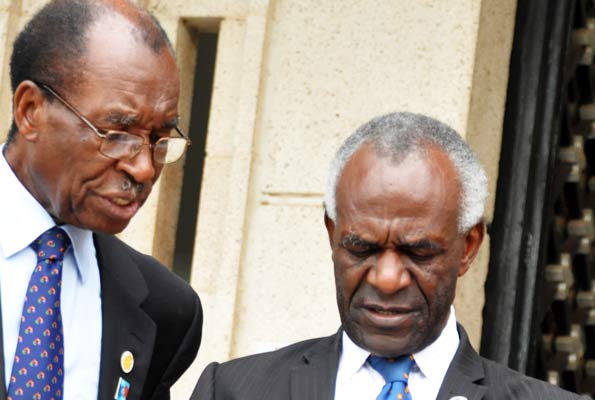Prime
Fuel stations disguising to avoid closure over noncompliance - UNBS

Stakeholders are seen during a Fuel Marking and Fuel Quality Monitoring Programme (FQMP) Stakeholders’ Workshop in Jinja City on August 8, 2024. PHOTO/PHILIP WAFULA
What you need to know:
- By close of June 2024, there were about 5,118 retail stations recorded in the FQMP database, according to UNBS.
The Uganda National Bureau of Standards (UNBS) says some retail fuel stations are operating by -different names- of other companies, while others are changing names and ownership to avoid closure over noncompliance.
This was revealed during a Fuel Quality Monitoring Programme (FQMP) Stakeholders’ Workshop in Jinja City.
The FQMP is a government programme designed to monitor and control the quality of petroleum products in the entire supply chain in Uganda. It is implemented under a cooperative arrangement between the Ministry of Energy and Mineral Development (MEMD) and UNBS.
Highlighting some of their challenges, UNBS FQMP field supervisor Peter Kitimbo said: “Retail stations are operating in other companies’ names and changing ownership or names whenever they have been found non-compliant.”
On August 8, Kitimbo noted that the FQMP offers consumer quality assurance and protection for products at the final dispensing outlet.
According to UNBS, by close of June 2024, there were about 5,118 retail stations recorded in the FQMP database, with their monthly monitoring coverage being about or more than 68.8 percent.
Despite the challenges, Kitimbo says FQMP has expanded UNBS’ deep reach out into eight regions from the previous six every month, while monitoring the quality of petroleum imports has improved progressively with reduction in levels of adulteration.
“The ten mobile laboratory vehicles have improved on the efficiency of the marker monitoring operations. There is a greater response from the public on issues of fuel quality after the awareness campaign,” he explained.
The commissioner for petroleum supply at the Ministry of Energy, Rev Frank Tukwasibwe, said as a regulation, all fuel entering into Uganda for Uganda’s market, not transit, is marked, indicating a very small quantity for small parts per million.
This is then traced in the file monitor and if that fuel is within the acceptable range of that marker, they know it passed the right borders and is proper for Uganda.
“It is to ensure that when you are buying petrol, you are buying petrol and not a mixture of something else,” he said, adding that smuggled fuel undercuts that for which a tax has been paid,” Rev Tukwasibwe added.
UNBS Deputy Executive Director for management and financial Services Daniel Nangalama emphasized that they are well equipped with resource persons, latest technology, and ready to fight the vice of disguising.
“The monitoring reports have given us a good message, although the Eastern region where I come from is scoring very badly. I know there are some porous borders in Lwakhakha (Namisindwa District) and elsewhere,’’ he highlighted.
“Those of you who listened to President Museveni, he did mention some porous borders in Busia, the recently-renovated port, I think we need to deal with this vice so that we change our position,” Nangalama said.
He added: “On a good note, our coverage is growing. We are now over 5,000, and in terms of monitoring, we are about 70 percent, while more good news is that in those areas we have covered, we were able to score 99.2 percent performance.”





